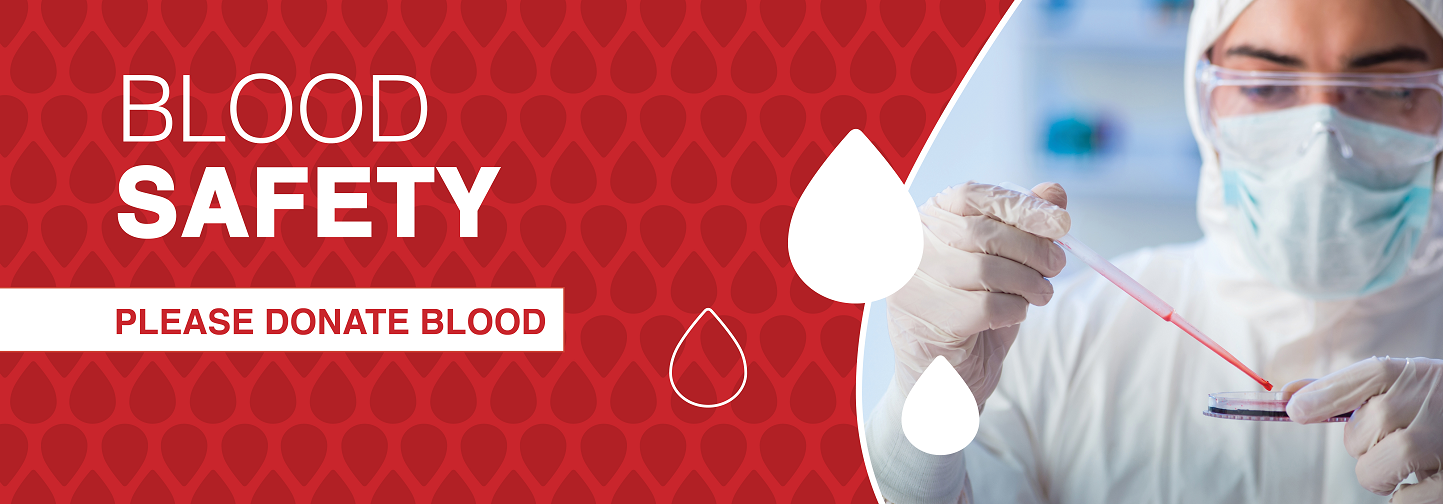BLOOD SAFETY
Note : There is no chance of contracting AIDS from blood donation, all needles and equipment are new, sterile and disposable. After use, all equipment is disposed of appropriately. Trained staff has very strict protocols to follow and ensure that all blood donation procedures are safe and hygienic.
The window period and what is it?
It is the time from which a person is infected with HIV or other viruses until the time when the virus can be seen or detected in blood tests.
The danger is that although a person tests “negative” during this period, the virus is still in their blood and it can be passed on to a patient though their blood donation,
A person can be infected with HIV without knowing it through unsafe sex and other high risk behaviours. This is why we ask people who have been involved in high risk behaviour not to donate blood.
How we ensure a safe blood supply?
Every single donation is tested for HIV 1, HIV 2, Syphilis, and Hepatitis B & C. In compliance with the recommendations of the WHO committee on the safety of blood and the following measures form part of the Standard and Principles of Transfusion practice throughout the country.
A voluntary donor base – this has been shown to be the source of the safest blood
Education of the prospective donor – this includes presentations and information for new donor clinics, as well as education material for new and existing donors on safe blood donation
Pre – donation screening – screening donors by means of indirect and direct questioning about health and at risk behaviour
Testing – we employ the most advanced DNA -based testing (NAT-testing), and FFP(fresh frozen plasma) units are double tested before issuing.
Sterilisation – Many of the plasma derived products are subjected to approve sterilisation procedures. Factor 8, Factor 9, Immunoglobulin, stabilised serum, and albumin.
Donor Safety
We try and ensure the donor is healthy enough to withstand the rapid withdrawal of 10% of his/her blood volume, without compromising his/her cardiovascular system and does not experience adverse effects due to blood donation. These are altruistic, voluntary donors and their well being is paramount to the staff of NAMBTS.
Patient Safety
Programes to promote donors to donate regularly have been initiated. Regular donors have been shown to be a safe source of blood. Through means of a written health questionnaire, and a verbal interview, we seek to establish which donor will be suitable to donate. Those we do not accept are deferred for a variety of reasons, either temporarily or permanently.
Donor Section (medical)
The donor is screened for the following risks:
- Medications
- Recent illness of infection
- Past illness and operations
- History of jaundice
- History of TB
- Early symptoms of HIV
- Malaria illness or recent exposure
- Previous blood transfusions

